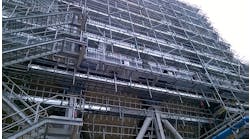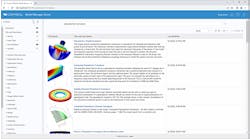Peter, Paul and Mary sang about a friendly dragon that slunk away to its cave when it was ignored. Today, we are singing a different, less melodious tune. The chemical industry faces another dragon. This “Asian dragon” symbolizes the explosive growth of the economies in that region, particularly China, which is transforming, among other things, the global chemicals business. It certainly shows no sign of slinking away if we choose to ignore it — not that we can.
In years past, such growth might have been almost universally welcomed here as a potential bonanza for chemical exports. Today, many U.S. operating companies view Asia with dread, not promise, because of concerns about competitiveness. Certainly, the traditional feedstock advantages that fueled a lot of American chemical exports have disappeared. Worse yet, our aging plants now must compete with new plants that are starting up in areas with lower feedstock costs that are closer to the burgeoning Asian markets.
As consultant Bernie Price says in his article on p. TK, American companies with prohibitively high labor and raw material costs might have no alternative for survival but to close domestic plants and move production to Asia. However, most U.S. chemical companies really aren’t in that dire a predicament, he insists. They have plenty of scope for improving the competitiveness of their sites here. Many plants now operate with a mediocre overall equipment effectiveness of 65% or so. They often can boost this by at least 20% in a few years, he says, with much of the gain going directly to the bottom line.
This efficiency improvement stems from well-established techniques that already have proved successful for other American industries, such as semiconductors, faced with challenges from overseas. But they will require profound changes at chemical companies.
Too many firms have focused on being lean rather than efficient, Price stresses. They have decimated their manufacturing organizations in the name of efficiency, but actually have hampered, if not destroyed, the potential to really improve their operations.
An underlying reason, to my mind, is that these firms do not properly value technical experience and expertise. Whatever the rationale, many skilled veterans have been sacrificed on the altar of short-term savings during the last few years. I find it hard to name a single company whose operational performance and prospects are better because of this. Can you?
Don’t read this as a slight to younger engineers. I believe they are better trained in many fundamental areas than graduates of my generation, although they may lack some of the practical grounding we received. They just haven’t had time to develop the in-depth operational knowledge that chemical companies need now more than ever.
Some of that knowledge is harder to find today because veterans have retired or moved to other industries. Luckily, a lot of expertise and experience remains available — and underutilized. U.S. chemical companies must leverage the skills and know-how of veterans if the firms are to thrive.
Improving operational efficiency demands that the American chemical industry rethink its approach to operations — not just its methods, but also its attitude toward experience and expertise. Otherwise, we might be singing a dirge before too long.
Continue Reading
Continue Reading
Latest from Design & Simulation
Latest from Design & Simulation

